No one can exactly accuse Federico Garcia Lorca's 1936 play of falling into neglect. From Howard Davies's National Theatre revival to this latest reclamation by the Almeida, The House of Bernarda Alba has received six separate airings in (or near) London within almost seven years. The various treatments include an American stage musical, an adaptation relocated to Pakistan, and a puppet play performed to a pre-recorded Farsi soundtrack. Bijan Sheibani's current production is live-action, to be sure, but follows the Middle Eastern motif: this is the first Lorca revival in my experience to contain a lengthy programme essay on music in the style of Dashti.
In fact, it says something about the thematic breadth of the piece that so ripely Spanish a tale of repression can extend such a global reach; I, for one, await the (as yet unscripted, as far as I know) appropriation that surely exists to be set among the American religious right, yet another community where dogma is often seen precipitating the destruction of those caught beneath its domestic yoke. In the meantime, we have Sheibani's physically impressive, erratically acted staging set in a high-walled Iranian home-as-fortress that functions as a prison in everything but name. (Designer Bunny Christie's tiny windows amplify the cell-like feel.) The fresh version of the text is from the American writer/director Emily Mann, who has an abiding interest in cultural cross-fertilisation: Broadway this spring will see her production of A Streetcar Named Desire, with an African-American cast.
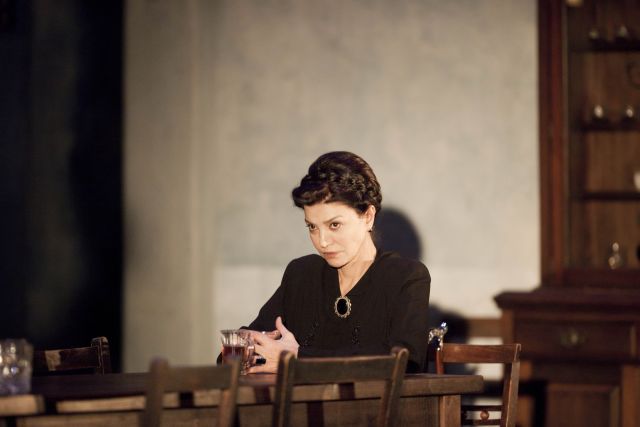 In casting terms, the focus inevitably falls on Bernarda Alba, the cane-wielding matriarch who rides roughshod over five daughters that are nearly 20 years apart in age. The part here falls to Shohreh Aghdashloo, the California-based Iranian actress who came to celluloid attention via her 2004 Oscar-nominated turn as Ben Kingsley's aggrieved wife in House of Sand and Fog and has cut a vivid, commanding presence in many a TV show, as well: her seeming affinity for projects with the word House in the title makes one wonder what she will turn to next. (Probably the least likely option: Our House, the Madness musical.)
In casting terms, the focus inevitably falls on Bernarda Alba, the cane-wielding matriarch who rides roughshod over five daughters that are nearly 20 years apart in age. The part here falls to Shohreh Aghdashloo, the California-based Iranian actress who came to celluloid attention via her 2004 Oscar-nominated turn as Ben Kingsley's aggrieved wife in House of Sand and Fog and has cut a vivid, commanding presence in many a TV show, as well: her seeming affinity for projects with the word House in the title makes one wonder what she will turn to next. (Probably the least likely option: Our House, the Madness musical.)
At the same time, I'm not sure Aghdashloo illuminates the landscape of Lorca, her vocal purr at immediate odds with a woman who leaves fear in her wake with each withering aspersion or attack. Incongruously suggesting a gently accented Kathleen Turner soundalike, Aghdashloo doesn't come easily by the ramrod authority that keeps her household in a state of psychic upheaval, however much the actress tries to humanise the role by playing up the physical pain that is as much Bernarda Alba's lot as her loveless brood. (I know the woman is referred to as a "panther" but that doesn't necessarily mean she should give off the air of a glamour puss more suited to the catwalk, a bum leg notwithstanding.)
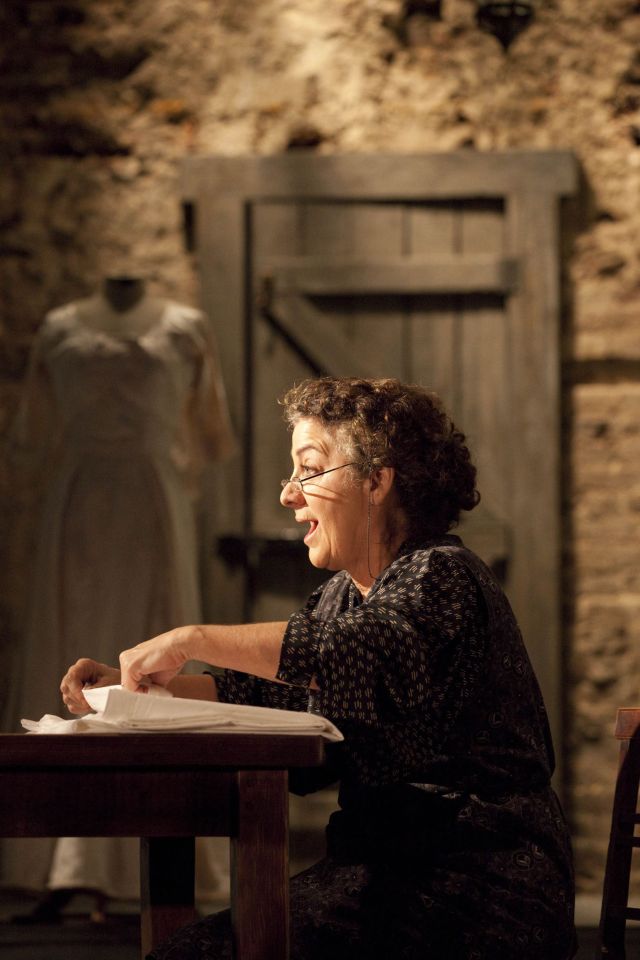 One wonders, too, how much humanity exists to be found in a snobbish, status-obsessed harridan who at one point vaults herself into the street to cheer on the public stoning of a local girl? Such milk of human kindness as was ever there curdled years ago, and Aghdashloo simply doesn't match the "old tyrant" spoken of by the housekeeper Darya. Bernarda's exact contemporary, Darya, in turn, is the one person who can address her termagant of an employer head-on, and Jane Bertish (pictured above) brings to the part a snappish intelligence and wit that mark her out as a possible Bernarda Alba some day in a different context. (Bertish possesses something of the flintiness of Glenda Jackson, who for me remains the title role's standout interpreter in director Nuria Espert's epoch-defining 1986 production.)
One wonders, too, how much humanity exists to be found in a snobbish, status-obsessed harridan who at one point vaults herself into the street to cheer on the public stoning of a local girl? Such milk of human kindness as was ever there curdled years ago, and Aghdashloo simply doesn't match the "old tyrant" spoken of by the housekeeper Darya. Bernarda's exact contemporary, Darya, in turn, is the one person who can address her termagant of an employer head-on, and Jane Bertish (pictured above) brings to the part a snappish intelligence and wit that mark her out as a possible Bernarda Alba some day in a different context. (Bertish possesses something of the flintiness of Glenda Jackson, who for me remains the title role's standout interpreter in director Nuria Espert's epoch-defining 1986 production.)
Bertish excels in a company that is oddly hit-and-miss, at times falling either into blankness (several of Bernarda's quintet of spinster children barely register) or posturing. That latter category includes Jasmina Daniel as the nocturnally minded Amina, Bernarda's mum, who emerges at stagey intervals from apparent house arrest, and there's not much sense that this family, however fractious, are cut from the same cloth. That said, Amanda Hale impresses as a daughter who goes snap well before her mother's fearsome cane is visibly seen to do just that, and Hara Yannas cuts an arrestingly febrile (and barefoot) figure as the rabidly eroticised youngest daughter, Adela, the one character besides the eponymous Bernarda whose name has been retained from Lorca's original.
In purely physical terms, Sheibani is working at full tilt, as might be expected from the director who brought the National's Olivier auditorium to swirling culinary life last autumn with The Kitchen. The shivery beginning makes for a dramatic prelude to a stage soon filled with burqa-wearing mourners (uncredited in the programme), and Jon Clark's lighting abets Christie's incipient mausoleum of a set to ensure that, visually, the show cuts to the quick. If only more of the acting did, too.
- The House of Bernarda Alba at the Almeida Theatre until 10 March

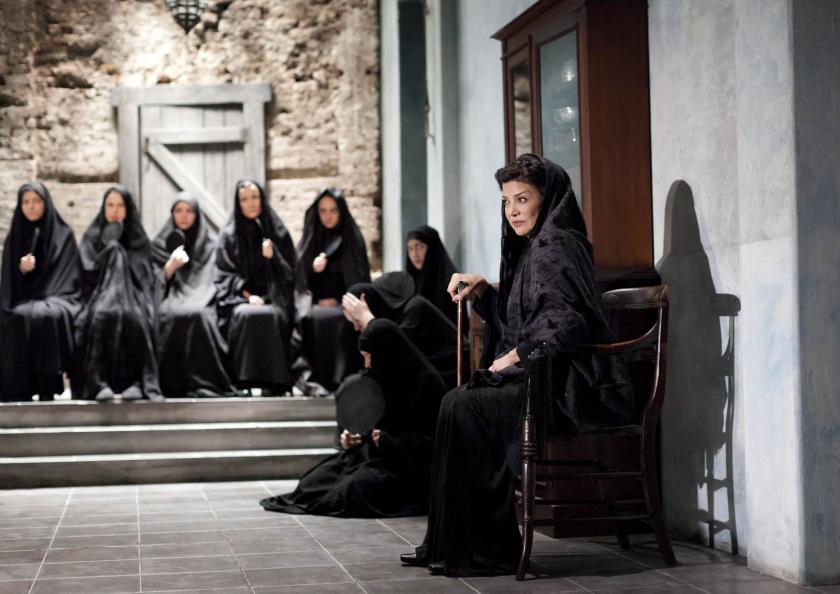

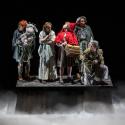
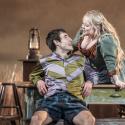

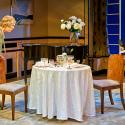
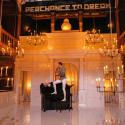
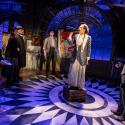
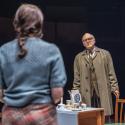
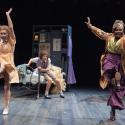
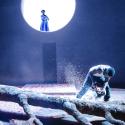
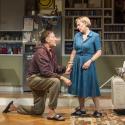
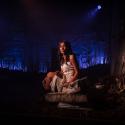
Add comment